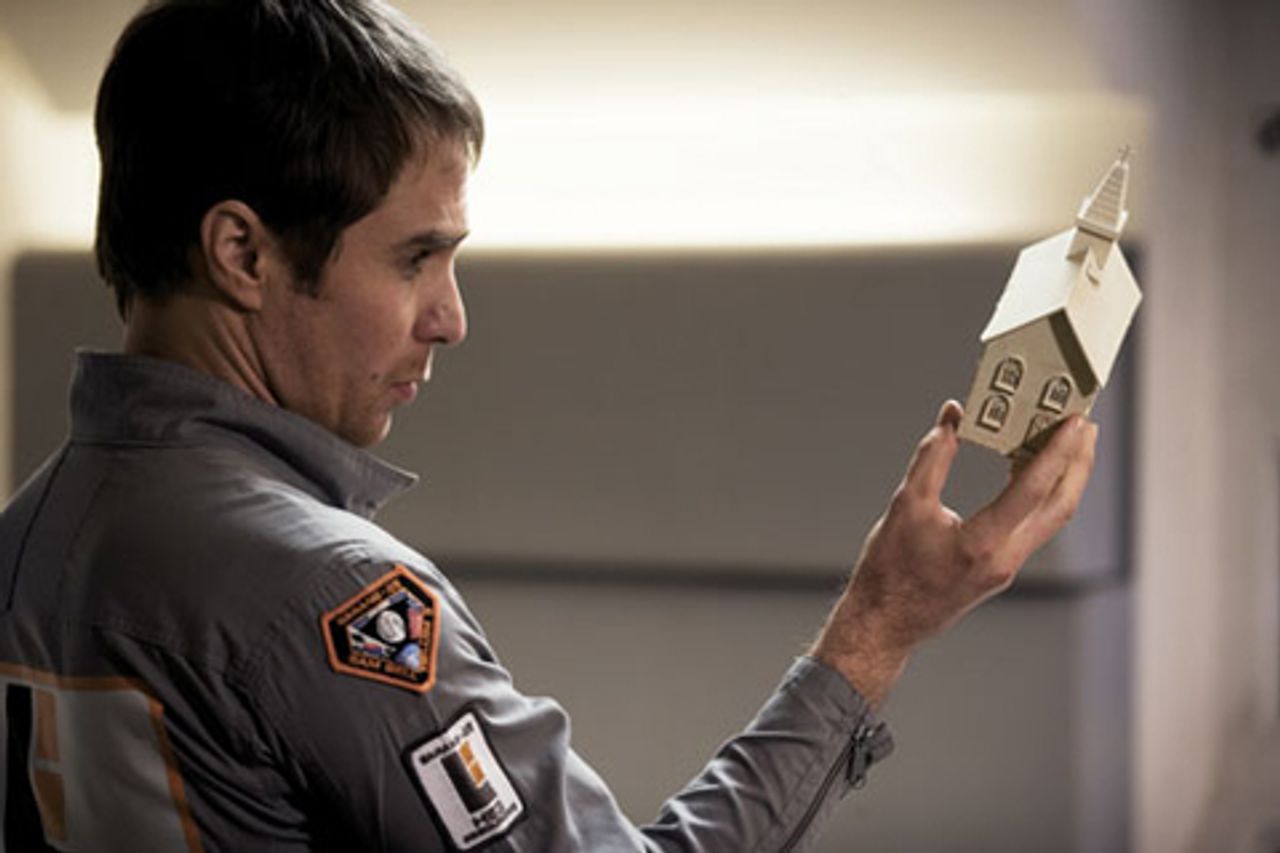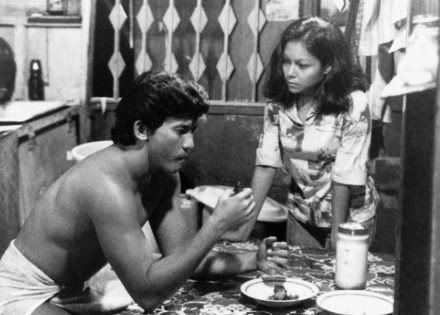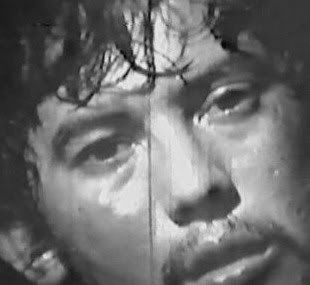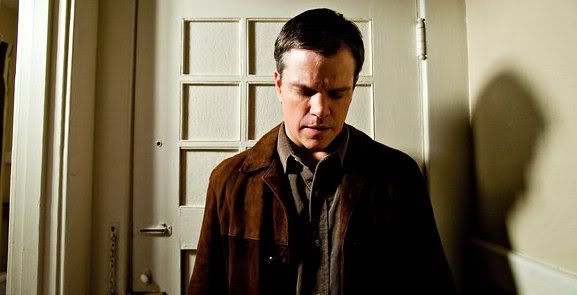 Werner Herzog: "This is the entertainment of the future."
Werner Herzog: "This is the entertainment of the future."
The nothingness of nothing, the meaninglessness of conformism, and the ennui of existence. Sounds like the last thing for a film to be made about, right? But then there is "Gummo", a film that tackled these with such surreal handling and awkward storytelling (that mirrors the film's essentially subversive yet minimalist approach) that, although polarizing, it has nonetheless shared such an abstract yet endlessly intriguing piece of mind extracted out of some trashed and dilapidated obscurity.
The film, although revolving around different misadventures of the tornado-stricken town's (Xenia, Ohio) juvenile inhabitants and is also seemingly at ease with its own lack of direction, its focus rests deeply upon friends/partners in crime Solomon (Jacob Reynolds) and Tummler (Nick Sutton) and their several miscellaneous exploits and small transgressions. But then, although they were the ones that were chiefly followed by the camera all throughout, its ADD is still very much evident, so why is that?
'That's what it needs', Director Harmony Korine may and could have said regarding Gummo's visual and narrative style. No, not just because of glorified 'pretense': that's too vague and generalizing a word. More than anyhing else, perhaps because it complements its characters' urban journey through whatnots and into wherevers perfectly. It dared to observe this psychologically chaotic state brought forth by a natural disaster (though I think the film is not about its traumatizing effects) with a certain amoral viewpoint.
Now, I'm almost halfway done with my review yet I still haven't written anything about what the film is really all about aside from all those pseudo-nihilistic themes mentioned in the very first sentence. But here we go, a piece of my mind.
(SPOILERS)
I look upon "Gummo" not as a film dealing with the devastating after-effects of a catastrophic tragedy but as a sharply satiric, yet thematically contrasting piece of work about the endpoint of human entropy. Throughout the film, we see all these people punching each other (genuinely), wrecking inanimate tables and chairs, and even spouting racial slurs. As we adjust into the film's confused perspective, we realize that it's their way of life, and sensitization is never one of their goals.
At first look, it's really hard to notice anything even remotely profound about the whole film, but digging deeply enough, I even found the 'feline torture fixation' prevalent in the teenagers' (especially Solomon and Tummler) set of daily activities as a surprising symbolism.
The cats are the representations of an 'orderly' life. There's one scene where Tummler is about to shoot a black cat dead, only to be talked out of it by Solomon, telling him that it's a 'house cat'. The cat then ran inside the house. Later, it was immediately revealed that its owners are three sisters that, although eccentric, live a considerably simple, relatively manicured life.
Considering that many of the juvenile characters are into killing cats, it's quite given that, based on their absurd preferences, their lives are therefore rendered directionless by their penchant for destroying these 'guardians of homes' (an Ancient Roman symbol for felines).
Then after some time, the sisters lost the black cat. They printed out fliers to distribute to people in the hopes of finding the animal. But the next thing they knew, they are being sexually harassed (unsuccessfully) by an old man in a car. Yes, the deed was prevented, but it was a shape of things to come.
The next thing we see, the two of the three sisters are already half-submerged in a pool and making out with the Bunny Boy (played by Jacob Sewell, another significant character whose place in the film is really very unclear), all while a potentially heavy rain (and a menage a trois) waits on the wings. After that, there's Solomon and Tummler staring at the said 'missing' animal with cocked cap guns. They then shot the 'black' cat dead. And in the film's most haunting moment, the Bunny Boy then shows the deceased animal directly into the camera as if proclaiming another conquest. It turns out, this so-called conquest was the three naive sisters, which are finally convinced to join in the free-for-all ride towards nihilism.
Aside from that, I also like how "Gummo" was able to convey, in utter simplicity, the sheer innocence of the mentally disabled, especially the scene of the 'challenged' woman near the end talking about how she loves to take care of her dolls and toys because she wants them "straightened out".
Because of her lack of idea of the psychological milieu around her, she is therefore very much living an 'orderly' life, fully suggested by how she sings the ever-organized 'ABC' song near the beginning. And even after all of the random acts committed by the apocalyptic characters who all want to waste away in their private wasteland of Xenia, the woman still found the time to sing "Jesus Loves Me" while she's calmly lying in her bed for a peaceful sleep.
"Gummo": started up rough, ragged, and tasteless, but ended as a simple embrace of the old adage "Ignorance is bliss". As her song lingers in the end credits, a heavy metal music suddenly interrupts it; we're back in reality.
The film, although revolving around different misadventures of the tornado-stricken town's (Xenia, Ohio) juvenile inhabitants and is also seemingly at ease with its own lack of direction, its focus rests deeply upon friends/partners in crime Solomon (Jacob Reynolds) and Tummler (Nick Sutton) and their several miscellaneous exploits and small transgressions. But then, although they were the ones that were chiefly followed by the camera all throughout, its ADD is still very much evident, so why is that?
'That's what it needs', Director Harmony Korine may and could have said regarding Gummo's visual and narrative style. No, not just because of glorified 'pretense': that's too vague and generalizing a word. More than anyhing else, perhaps because it complements its characters' urban journey through whatnots and into wherevers perfectly. It dared to observe this psychologically chaotic state brought forth by a natural disaster (though I think the film is not about its traumatizing effects) with a certain amoral viewpoint.
Now, I'm almost halfway done with my review yet I still haven't written anything about what the film is really all about aside from all those pseudo-nihilistic themes mentioned in the very first sentence. But here we go, a piece of my mind.
(SPOILERS)
I look upon "Gummo" not as a film dealing with the devastating after-effects of a catastrophic tragedy but as a sharply satiric, yet thematically contrasting piece of work about the endpoint of human entropy. Throughout the film, we see all these people punching each other (genuinely), wrecking inanimate tables and chairs, and even spouting racial slurs. As we adjust into the film's confused perspective, we realize that it's their way of life, and sensitization is never one of their goals.
At first look, it's really hard to notice anything even remotely profound about the whole film, but digging deeply enough, I even found the 'feline torture fixation' prevalent in the teenagers' (especially Solomon and Tummler) set of daily activities as a surprising symbolism.
The cats are the representations of an 'orderly' life. There's one scene where Tummler is about to shoot a black cat dead, only to be talked out of it by Solomon, telling him that it's a 'house cat'. The cat then ran inside the house. Later, it was immediately revealed that its owners are three sisters that, although eccentric, live a considerably simple, relatively manicured life.
Considering that many of the juvenile characters are into killing cats, it's quite given that, based on their absurd preferences, their lives are therefore rendered directionless by their penchant for destroying these 'guardians of homes' (an Ancient Roman symbol for felines).
Then after some time, the sisters lost the black cat. They printed out fliers to distribute to people in the hopes of finding the animal. But the next thing they knew, they are being sexually harassed (unsuccessfully) by an old man in a car. Yes, the deed was prevented, but it was a shape of things to come.
The next thing we see, the two of the three sisters are already half-submerged in a pool and making out with the Bunny Boy (played by Jacob Sewell, another significant character whose place in the film is really very unclear), all while a potentially heavy rain (and a menage a trois) waits on the wings. After that, there's Solomon and Tummler staring at the said 'missing' animal with cocked cap guns. They then shot the 'black' cat dead. And in the film's most haunting moment, the Bunny Boy then shows the deceased animal directly into the camera as if proclaiming another conquest. It turns out, this so-called conquest was the three naive sisters, which are finally convinced to join in the free-for-all ride towards nihilism.
Aside from that, I also like how "Gummo" was able to convey, in utter simplicity, the sheer innocence of the mentally disabled, especially the scene of the 'challenged' woman near the end talking about how she loves to take care of her dolls and toys because she wants them "straightened out".
Because of her lack of idea of the psychological milieu around her, she is therefore very much living an 'orderly' life, fully suggested by how she sings the ever-organized 'ABC' song near the beginning. And even after all of the random acts committed by the apocalyptic characters who all want to waste away in their private wasteland of Xenia, the woman still found the time to sing "Jesus Loves Me" while she's calmly lying in her bed for a peaceful sleep.
"Gummo": started up rough, ragged, and tasteless, but ended as a simple embrace of the old adage "Ignorance is bliss". As her song lingers in the end credits, a heavy metal music suddenly interrupts it; we're back in reality.


















